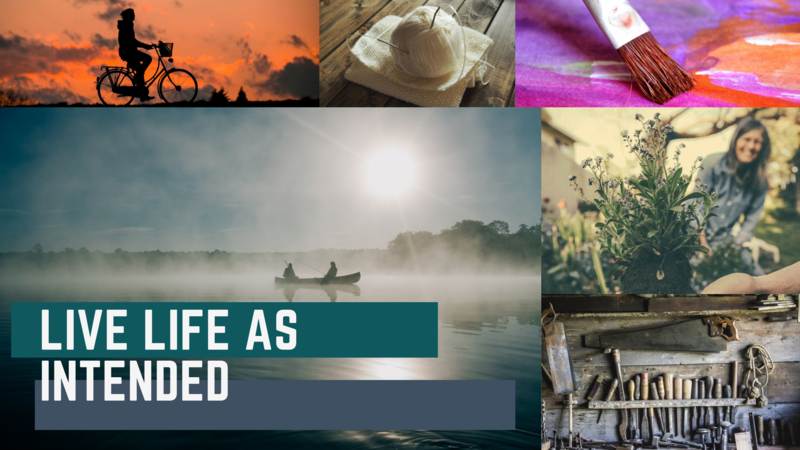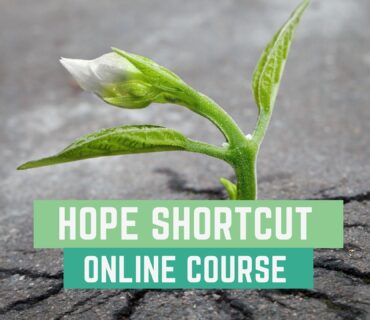28.1: Pacify stress – Closer to nature

1. Strategy: Live life as intended
Here you have to mentally go back to the year 1970 and before, where most people lived life closer to a natural life.
We are born to move 8 hours a day, and the rest of the time, either rest, eat or socialize.
So this strategy will be a long list of things to do differently, as people over 50 years may well remember from their younger days.
Take in as many as possible for this strategy to work. If you want this method to heal you, you must do it nearly 24 hours a day.
Intro to “Live your life as intended” (10 minutes)

We have ended up in a world where many movements are “saved” by devices, robots, machines, fast food, and other technological inventions. But our bodies cannot function properly without moving around most of the time.
Devices, robots, machines, fast food and other inventions have decreased the need for us to be active throughout the day. However, our bodies cannot function properly without moving around most of the time.
To increase daily activity:
- Take the stairs instead of the elevator/lift
- Use the hand mower instead of the gas or electric one
- Visit of call people instead of using… texting; natural contact with friends is soothing
- Use the bike instead of the car
- Make homemade food, bake your own bread, cake, jam and if you have a garden, start growing vegetables
- Visit or call people instead of using social media and texting as you are soothed by natural contact from friendly people
Some people experience an improvement in their stress and symptoms when they retire. They simply leave the stress at work. If their job was the only place in their life where they experienced stress, then stress and symptoms can drop to almost 0 when they retire.
If there is also stress at home symptoms will naturally follow into retirement unless you add one of the If there is also stress at home, stress and its symptoms will follow into retirement unless you add one of the other strategies
To succeed, remember the following calming beliefs
- “It’ll take the time it takes”
- “Better late than never”
- “Time is on my side”
- “My health is of bigger value than my comfort.”
It’s also important to avoid having too much on one’s plate, having many irons in the fire, being overly committed to something, having more than one can chew, multitasking, etc.
Simply put, don’t overdo it.

Mindful tasks
Hobbies of all kinds, making food or things for you and your family
- Cooking, baking, making dinner
- Taking care of indoor or outdoor plants
- Reading books
- Knitting, crocheting, sewing
- Crafting
In these activities, the brain descends to a near meditative stage. It is so intricate that you keep your focus on the work and so trivial that the brain gets into gear.
PACE YOURSELF:
- At NO point do you work faster than your heart beats at rest, and you don’t push yourself to do things fast. Instead remind yourself to be slower.
MINDSET:
- You have no fixed plan about how many task you finish today. Just continue as long as it feel nice. If not you stop and wait for another day.
- If it is a tedious task you need to do, put on some music or invite a friend to join you. the world probably not stop spinning if you stop and leave it to another day.
- When you take the challenge of learning a new hobby or task, remember that the quality of your work will improve as you gain experience. Everyone else has started at that stage as well.

Strengthens balance
- Gardening
- Caring for young children
- Somersaults (in bed), https://youtu.be/3ZjLSmH0Oew?t=57
- Look up and to the sides, as you walk, as if you were hunting (see the module concerning body hacks)

Tasks that make you happy
- Singing, dancing
- Play music/instruments
- Whistle, make noise, and laugh
- Jump or make big moves
- Spend time together with friendly people
In addition, you also do these activities with other friendly people, so you feel good and have a chance for a good laugh. We feel right being part of a herd.
If you slow down or make large movements, it is also a sign to the body that there is peace and no danger.
Our brain is hardwired to know that there is no danger if you are among friendly people (e.g. at a nice party). When there is a party, there is no danger around you – you are in a herd of people and noone (hopefully) send signals of danger. Calming and rytmical music is also affecting you.
NOTE:
- If you have trauma or body memories associated to parties and people you do not know, parties could of course trigger these old memories. This is a good subject to address with a therapist. We often call it social anxiety, or introversion. Body memories are often there to protect you from similar situations, such as:
- If something stressful is going on at the party (music that is too loud, drunken people with unpredictable mood, angry people etc.)
- If a dangerous predator came, you would quickly stop all the noise and go into your instincts and be very alert.
- There are also a lot of other useful benefits with party related activities, like dancing, singing and making music. These activities strengthen memory and coordination and general wellbeing and bonding to other people.

Exercise
- Gardening
- Long walks
- Walk or bike to the day’s task
- Take the stairs
- Play with children
- Help neighbors
- Stretch your entire body like a cat before the day begins
You must, of course, stay fit, and here you can borrow from “Train the calm,” which has a few Qi Gong videos.
If you are not physically tired when you go to bed, you need to intensify the day’s program.

Refuel yourself
- Stare out the window during train or bus transport
- Stare into the fire
- Stare at the birds in the garden or up at the clouds drifting by
- Sit by the beach and stare out at the waves
- Walk in the woods and let the wind and weather distract your buzy mind. A good way of getting mindfull. I.e. having a mind that focus on the actual sensations going on around you NOW.
- When bored, you will soon find something exciting to do.
- Take a nap after dinner if needed

Reinforce your relationships
- Rediscover old friendships
- Find new communities (choir, photography, cooking etc.)
- Offer your help to those in need in the family and local area. To help others gives joy

Learn new skills
- Take a course
- Do something new you’ve wanted to do for many years
- Find a new hobby

Avoid
- Television
- Computers and social media
- Automation and robots
- Elevators/Lifts
- Sitting down during the daytime (also in the car)
Consider
- Leaving the mobile phone in the hallway and only using it to make calls.
- Using the computer only in rare cases.
- Turning off social media or reducing it to a minimum
- Our bodies cannot withstand all the automation and time on the couch, and our brains are not made to constantly look at a screen and scroll.
Our bodies cannot withstand all the automation and time on the couch and our brains cannot withstand the eternal look and scroll of a screen.

By this method you switch towards:
- Being naturally active with routine activities
- Refueling your mind in the natural breaks along the way.
In this way, the brain goes into a calmer gear, just as it is intended by nature.

